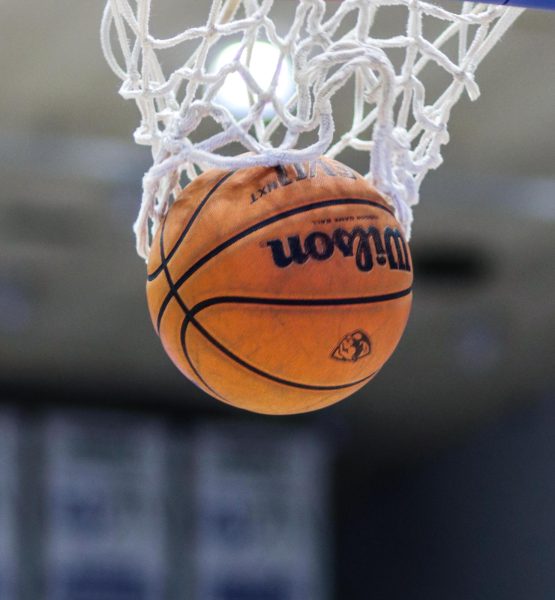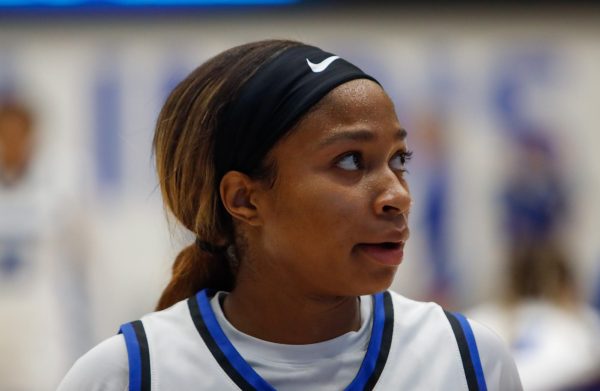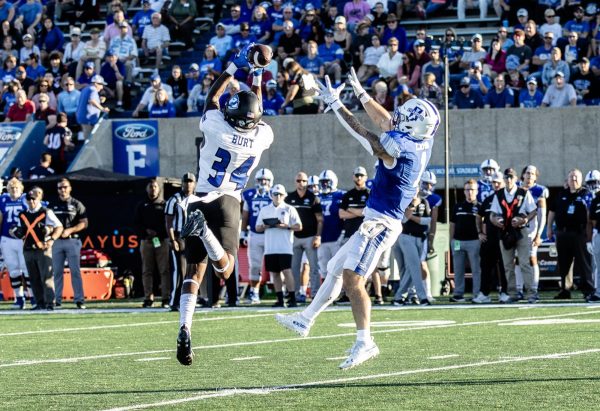Keeping the pounds up
Weight is one of the most important numbers to a wrestler.
It keeps competition to different groups and classes. It also gives the Panthers different goals to keep at.
“We’ve got a weigh-in weigh-out chart,” head coach Ralph McCausland said. “At the beginning of the season, we basically do a body composition on them. It’s required by the NCAA. We do a hydration test to see what state of hydration their body’s in. They have to meet a certain parameter, just like drug testing, that the NCAA does.”
After the body composition and hydration test, the Panthers then weigh each player to a tenth of a pound and do a skin fold test on them to calculate their lowest weight they should have.
“Right now we got a calendar in the room where some of the guys are going to have to wrestle up a weight,” McCausland said. “Shane Dintelman, for example, will be 157, but he can’t make 157 for the first tournament this Sunday, so that means he has to wrestle 165.”
This can be a problem that can hurt teams in tournaments.
If a wrestler is over on his weight by even a pound, he has to wrestle in the next highest class where he is normally outweighed.
McCausland said most of them team normally does not have a problem.
“Usually they have enough discipline that they have it (weight) down,” he said. “This past week we had everybody weigh in. We had a couple that were off a pound, a pound point two, but they were within range.”
Senior Kenny Robertson said after the first few weeks, the weight becomes a science for him.
“The first couple times you’re losing mostly fat, and then you get down to a good weight where you just lose a couple pounds of water,” Robertson said. “Then just science. ‘I can eat this much and that’s eight ounces of water.’ You want to eat the whole time. You don’t want to starve yourself because then you get out there and you’re dead.”
He said his weight is currently fine for his weight class of 174 pounds.
The only wrestlers that normally have problems, McCausland said, are the heavyweights. This is normally because of the training.
“As the season goes on, we train them harder,” McCausland said. “It’s always a progression from the beginning of the season. You train harder, you burn more calories.”
Joe Trinka, who looks to be the heavyweight this year, will have the hardest time he believes. To wrestle heavyweight, a wrestler has to weigh in at 285 pounds.
“I think he’s 245 right now,” McCausland said. “There’s a kid whose seven to eight percent body fat. He’s going to struggle to keep his weight on, especially when we start training harder.”
Trinka said he’s just been eating three to five times a day to keep his weight constant.
“I’m the heavyweight, so I’m just trying to gain weight,” Trinka said.





































































